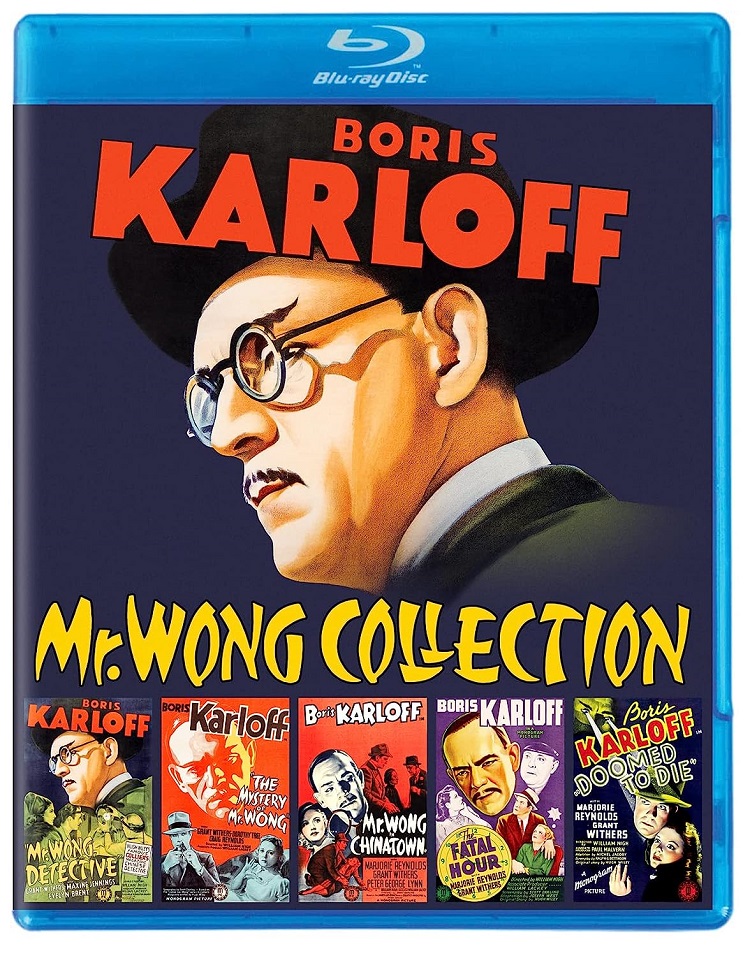
The early 1920s saw an influx of Chinese immigrants to the United States. This so-called “Yellow Peril” unsurprisingly led to a moral panic, no doubt inflamed by the media and the usual cavalcade of politicians. This led to the Immigration Act of 1924 which severely limited the number of Chinese immigrants into the U.S. You can see this fear come out in the movies with the Oriental villain character becoming a popular trope. Cruel and diabolical, the most popular of these villains was Fu Manchu who appeared in dozens of books and movies.
As both the number of immigrants coming to the United States declined and those who were already over here began to assimilate, the moral panic began to subside. Enter Charlie Chan as a Chinese super sleuth who began in a series of stories published in the Saturday Evening Post and quickly moved into television shows, radio serials, and numerous movies. Popularized by Swedish actor Warner Oland, the Chan films were a staple in American cinemas for many years.
A series of similar films with Asian detectives soon followed. The most popular of which were the Mr. Motto films starring Hungarian actor Peter Lorre as a Japanese secret agent and Mr. Wong who was played by English actor Boris Karloff as a Chinese private detective in five films. It is the latter which has been just released in a two-disk Blu-ray set from Kino Lorber.
Before we begin we must at least acknowledge the somewhat racist elephant in the room. As you can see, these three Asian characters were played by distinctly non-Asian actors. To varying degrees, the films dealt with various Asian stereotypes. I’ve not actually seen any of the Mr. Motto films but the Charlie Chan films certainly played up the character’s foreignness. He spoke in halted English, often muttering pearls of wisdom that read like fortune cookie fortunes. The films play up the comedy often having Chan and his sons behave in oafish, even cartoonish manners. In contrast, the Mr. Wong films tend to be played straight and serious.
It also doesn’t overplay the Chinese-ness of the character. When we see Wong at home, he’s often dressed in flowing Eastern robes and he has a Chinese servant, but when he leaves the office, he wears stylish Western suits with a trademark carnation in his lapel. He often uses his connections with the Chinese underground to solve a case, and he’s said to be an expert in Chinese history, but mostly he detects by using good old-fashioned shoe leather and asking lots of questions.
There is plenty of debate about whether or not any of this is racist or a positive representation. That is well beyond the scope of this review, but I would be remiss if I didn’t at least acknowledge it.
The five films represented here – Mr. Wong, Detective (1938), The Mystery of Mr. Wong (1939), Mr. Wong in Chinatown (1939), The Fatal Hour (1940), and Doomed to Die (1940) are all of the Mr. Wong movies starring Boris Karloff. There was one additional film made in the series, Phantom of Chinatown (1940) which stars Keye Luke as Mr. Wong (It was the first time an actual Asian actor was used to portray the lead in one of these Asian detective films. He also starred as Number 2 Son in many of the Charlie Chan films.
The plots are pretty much the same in every film. Someone is murdered, Wong is asked by Police Captain Sam Street (Grant Withers) for assistance. They wander around San Francisco asking various suspects questions and Wong solves the case. What I like about Wong is that there is nothing special about him. He doesn’t have the deductive powers of Sherlock Holmes, he isn’t especially skilled, and I’m not even sure that he’s all that good at his job. It’s just that Captain Street is so bad at it, that he makes Wong look like a genius. Wong works the case like a normal detective, sometimes he comes to dead ends, and sometimes he makes mistakes, but his doggedness gets the job done.
Where Wong is gentlemanly and subdued, Street is full of bluster and shouting. They make a good pair. With Mr. Wong in Chinatown, Marjorie Reynolds is introduced as ace reporter Bobbie Logan. She proves more of a foil for Street than Chan does. They constantly bicker with Bobbie always trying to scoop a story by sneaking into the crime scene (or Street’s office) and Street always kicking her out. I honestly was surprised they didn’t wind up together romantically so sitcom their relationship was.
Made by Poverty Row studio Monogram Pictures, the budgets are visibly low (though on the audio commentary film historian Tom Weaver notes that Karloff was paid quite well for his participation). Director William Nigh makes the most of what he’s provided with, often giving the films a nice noir feel.
These are not great films by any stretch of the imagination. The stories are the sort of thing you’d find in a Saturday Night at the Movies on ABC. The direction is adequate and the budgets are decidedly small. Karloff is good as Wong and I quite like Marjorie Reynolds as Bobbie Logan. But there isn’t really anything to make these films stand out. Yet, they have a certain charm. For fans of detective stories in classic films, this set is a must-own.
Kino Lorber presents these five films on two disks with new 2K scan of the Fine Grains. Extras include audio commentary on Mr. Wong, Detective, and a small booklet with photos and film information.